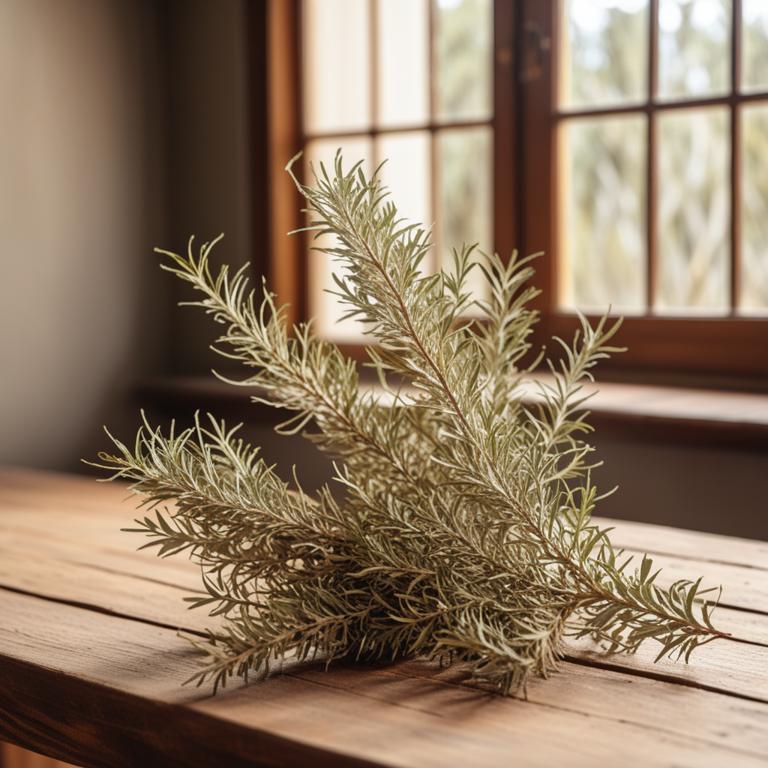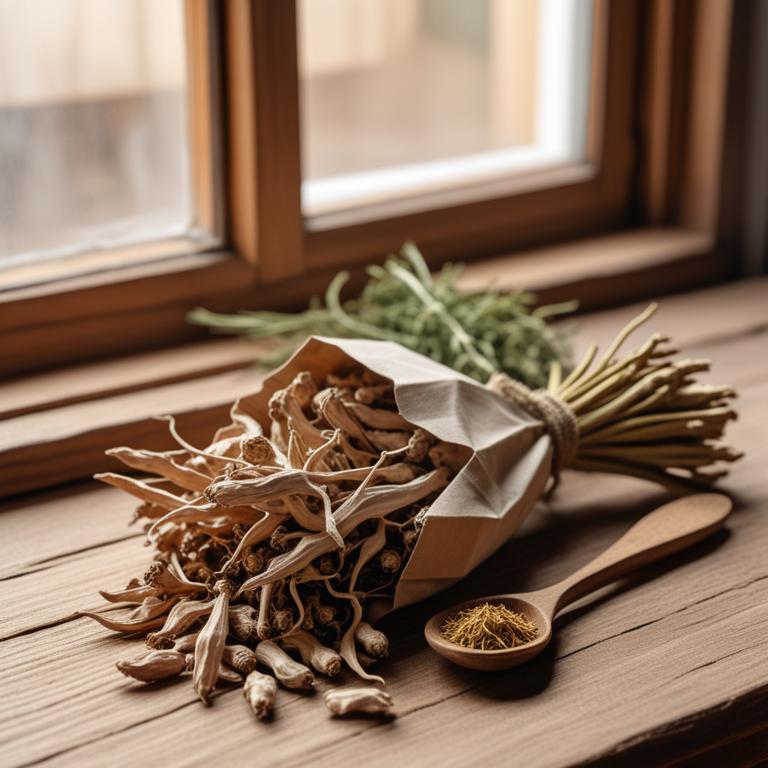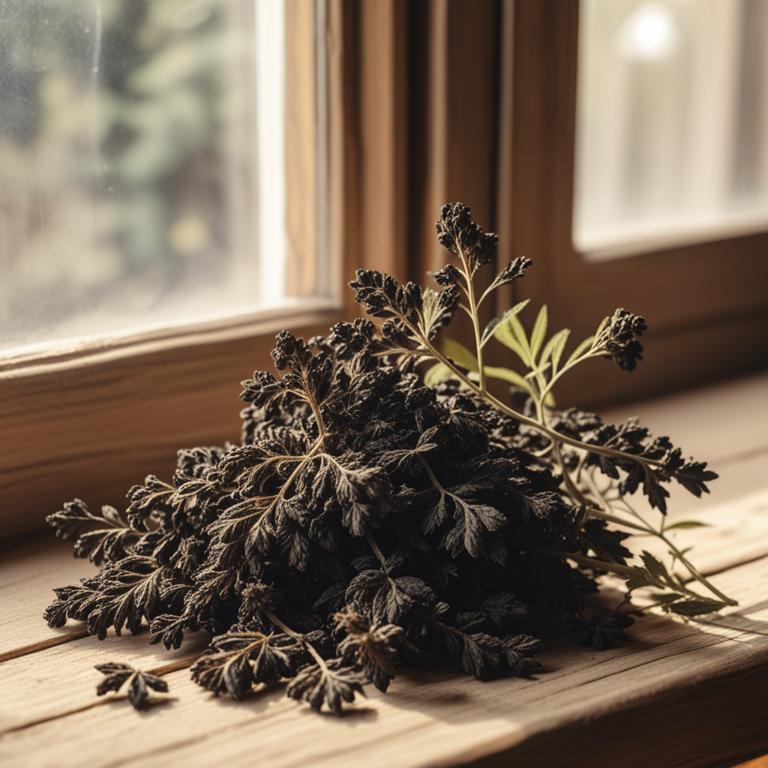Updated: Dec 1, 2024
Wheezing Treatment with Medicinal Herbs and Herbal Preparations
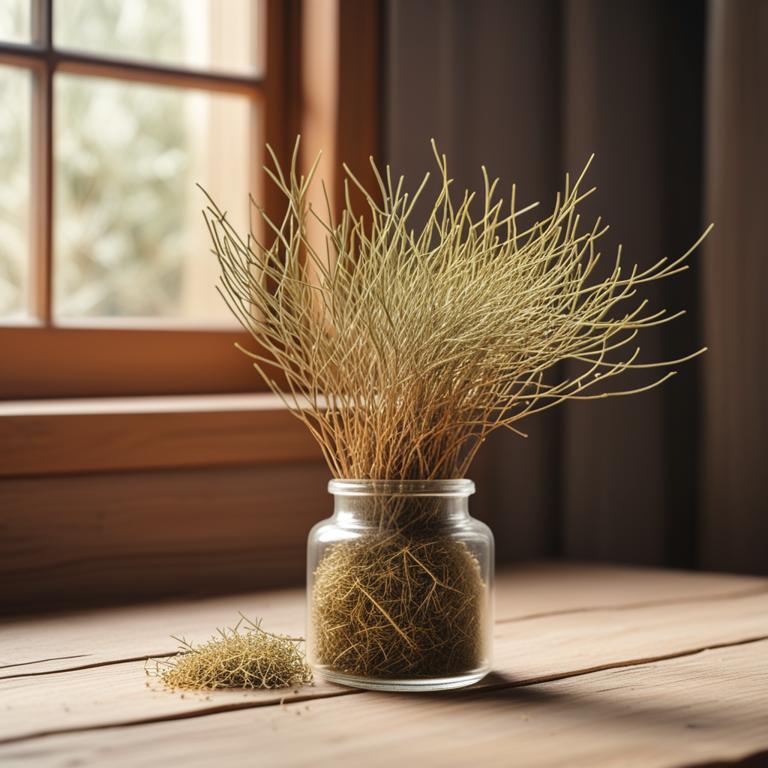
Wheezing is a common condition where you make a high-pitched sound when breathing out, often accompanied by coughing and shortness of breath.
It can be a real nuisance, making everyday activities like walking or even sleeping a challenge. Wheezing is often a symptom of asthma or chronic obstructive pulmonary disease (COPD), but it can also be caused by allergies, colds, or irritants like pollution or tobacco smoke. When you're wheezing, it's essential to address the underlying causes, which can include inflammation, airway constriction, or mucus buildup.
To soothe your airways, consider using herbal remedies that have natural anti-inflammatory and expectorant properties. Some healing herbs for wheezing include thyme, eucalyptus, and lobelia, which have been used for centuries to calm and clear airways. You can prepare these herbs as teas by steeping them in hot water, or use them in combination with other herbs in a formula specifically designed to relieve wheezing.
Drinking thyme tea, for example, can help loosen mucus and reduce inflammation, while eucalyptus oil added to a warm bath can help clear congestion and ease breathing.
Table of Contents
What triggers wheezing in individuals?
The main causes of wheezing are respiratory conditions that affect the airways in our lungs.
One of the most common causes is asthma, a condition where the airways become inflamed and narrow, making it hard to breathe. This causes wheezing sounds when we inhale and exhale. Another cause is bronchitis, an infection of the airways that leads to inflammation and mucus production, making it harder to breathe and causing wheezing.
Pneumonia is a serious infection that inflames the air sacs in our lungs, leading to wheezing, coughing, and difficulty breathing. Chronic obstructive pulmonary disease (COPD) is a long-term lung condition that damages the airways, making it harder to breathe and causing wheezing. In all these conditions, the airways become inflamed and narrowed, leading to the characteristic wheezing sound. This is often accompanied by coughing, difficulty breathing, and shortness of breath.
The exact cause of wheezing can be different for each person, but it's usually related to an underlying respiratory condition.
What are the benefits of using herbal supplements for wheezing?
Using herbs for wheezing can be a great way to find relief from symptoms.
One of the main benefits is that they are natural and gentle on the body, making them a good option for people who want to avoid harsh medications. These herbs have anti-inflammatory properties, which can help reduce swelling in the airways and make it easier to breathe. They also have expectorant properties, which can help bring up mucus and phlegm, making it easier to cough up and clear out the airways.
This can be especially helpful for people who have trouble breathing or who experience chronic wheezing. Many of these herbs have been used for centuries in traditional medicine, so they have a long history of being safe and effective. They can also be used in a variety of ways, such as making tea, taking supplements, or inhaling them as a vapor.
This makes it easy to find a method that works best for you.
What are the primary medicinal herbs used to treat wheezing?

Herbs can be a great help when you're wheezing.
Eucalyptus globulus is a good example - its main ingredient, eucalyptol, is a natural decongestant that helps open up your airways, making it easier to breathe. This can help relieve wheezing by allowing air to pass through your lungs more freely. Another helpful herb is Zingiber officinale, or ginger, which has anti-inflammatory properties that can soothe your airways and reduce swelling.
This can also help reduce the frequency and severity of wheezing episodes. Thymus vulgaris, or thyme, contains compounds that have antibacterial properties, which can help combat infections that might be contributing to your wheezing. Echinacea purpurea is an herb that's often used to boost your immune system, which can help prevent infections and reduce the likelihood of wheezing. Rosmarinus officinalis, or rosemary, has anti-inflammatory properties similar to ginger, which can also help soothe and calm your airways.
All of these herbs can be used in different ways, such as in teas, oils, or supplements, to help manage wheezing symptoms.
What herbal treatments are most often used to alleviate wheezing?
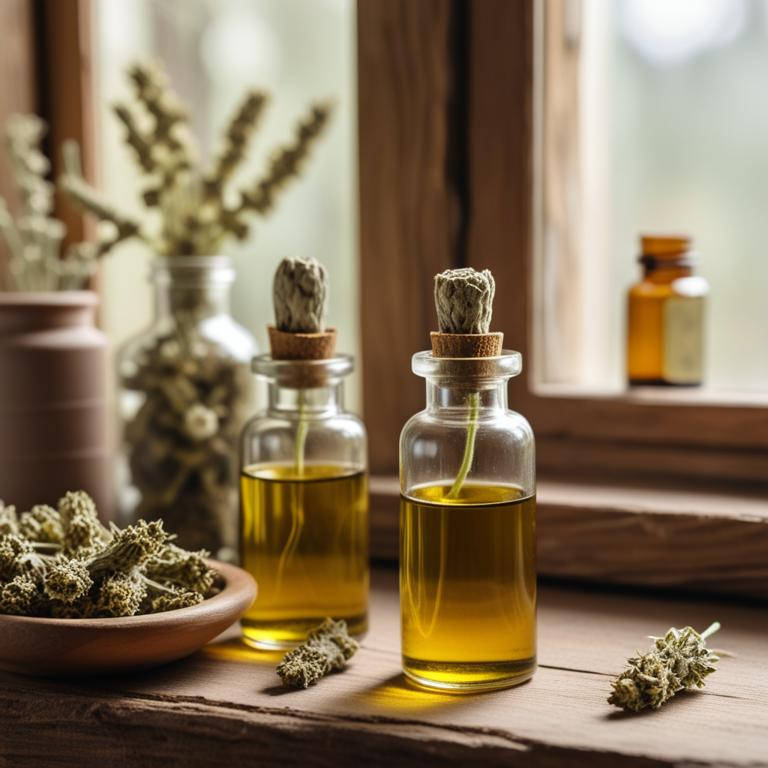
Herbal preparations are great for wheezing because they can help ease breathing and reduce symptoms.
A decoction is a strong tea made from roots or bark that can be inhaled to open up airways. This is good because it allows for deep breathing and can help clear out mucus that's causing the wheezing. A tincture, on the other hand, is a liquid extract that's often taken in small doses. It's good because it's easily absorbed by the body and can help calm down the airways. Tinctures often contain herbs like eucalyptus and thyme that have natural decongestant properties. Capsules are another form of herbal preparation that's often taken orally.
They're good because they provide a concentrated dose of the herb, which can be especially helpful when you're not feeling well. Some herbs like ginkgo biloba and turmeric are commonly used in capsules to help reduce inflammation and improve breathing. An infusion is similar to a tea, but it's usually made with delicate herbs that can be damaged by heat. This is good because it allows for the preservation of the herb's natural properties. Infusions are often used for herbs like peppermint and chamomile that can help calm down the airways and reduce wheezing. A salve is a topical application that's applied directly to the chest or lungs. This is good because it allows for direct delivery of the herb's healing properties to the affected area.
Salves often contain herbs like calendula and eucalyptus that can help reduce inflammation and promote healing.
Additional Resources:
What herbs should you be cautious of if you experience wheezing?
If you have wheezing, it's a good idea to steer clear of certain herbs that can trigger or worsen breathing problems.
Anethum graveolens, also known as dill, and Foeniculum vulgare, or fennel, can be particularly problematic. These herbs contain compounds that can irritate the airways, making wheezing worse. Artemisia absinthium, commonly known as wormwood, is another herb to avoid.
It contains a chemical called thujone, which can relax the muscles in the airways and exacerbate wheezing. Coriandrum sativum, or coriander, can have a similar effect, as its volatile oils can irritate the lungs and trigger wheezing. Cuminum cyminum, or cumin, is another herb to exercise caution with. While it's commonly used in cooking, its essential oils can cause the airways to constrict, leading to wheezing and breathing difficulties.
If you have wheezing, it's best to avoid these herbs to prevent any potential complications.
FAQ
Are there any specific herbs that can prevent wheezing?
Some herbs, like thyme and eucalyptus, are known to help ease wheezing.
Thyme's active compounds may open airways, while eucalyptus' decongestant properties can relieve congestion.
These herbs are often used in teas and inhalers to help people breathe more easily, particularly those with respiratory issues like asthma.
Is it safe to use herbal remedies for wheezing during pregnancy?
It's best to talk to your healthcare provider before using herbal remedies for wheezing during pregnancy.
Some herbs, like eucalyptus and thyme, are considered safe in small amounts, but others may not be.
The safety of herbal remedies during pregnancy hasn't been studied much, so it's better to err on the side of caution and choose a safer option.
Are there any herbs that can reduce the frequency of wheezing?
Some herbs, like thyme and eucalyptus, have been used to help ease breathing problems, including wheezing.
Thyme contains compounds that may help reduce inflammation in the airways, while eucalyptus oil has a decongestant effect, making it easier to breathe.
These herbs may help reduce wheezing episodes, but their effectiveness can vary from person to person.
Can i combine different herbal remedies for wheezing?
Combining herbal remedies for wheezing can be tricky.
Some herbs, like eucalyptus and peppermint, might help open airways, while others, like thyme and ginger, could soothe inflammation. However, their effects together may not be predictable.
It's best to start with small amounts of each herb and observe how your body reacts before increasing their use.
Related Articles
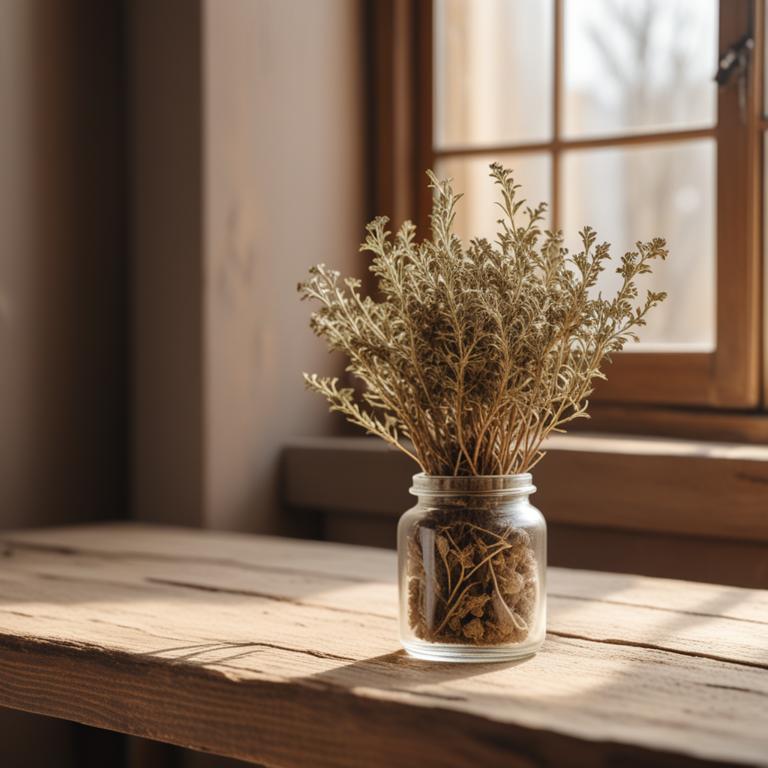
Throat Redness Causes, Remedies with Medicinal Herbs and Herbal Preparations
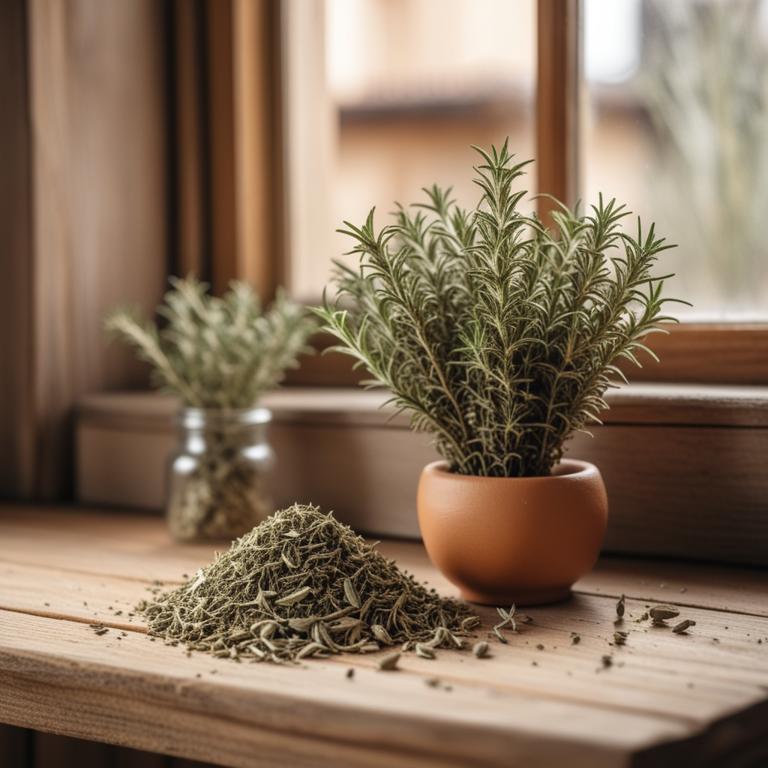
Causes, Medicinal Herbs, and Herbal Remedies for Shortness of Breath
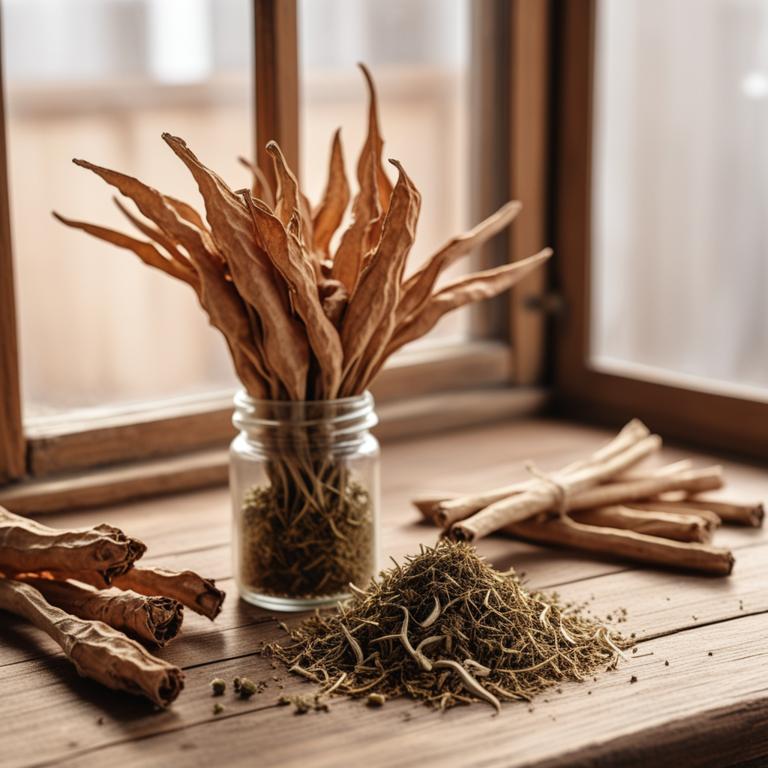
Cough Causes and Natural Cures: The Power of Herbal Preparations
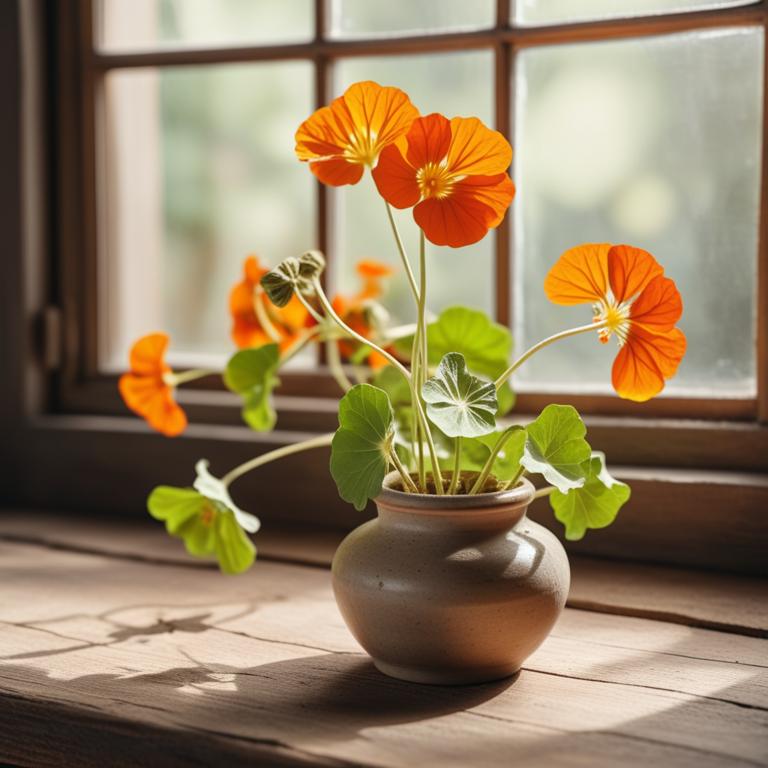
Hay Fever: Causes, Herbal Preparations, and Medicinal Herbs for Relief
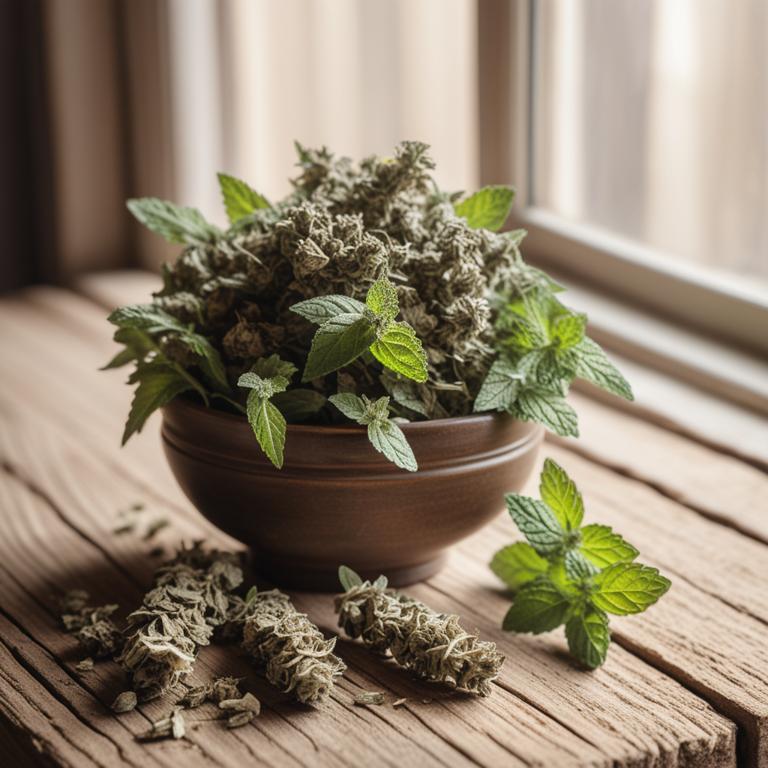
Blocked Nose: Causes, Prevention, and Medicinal Herbs for Relief
